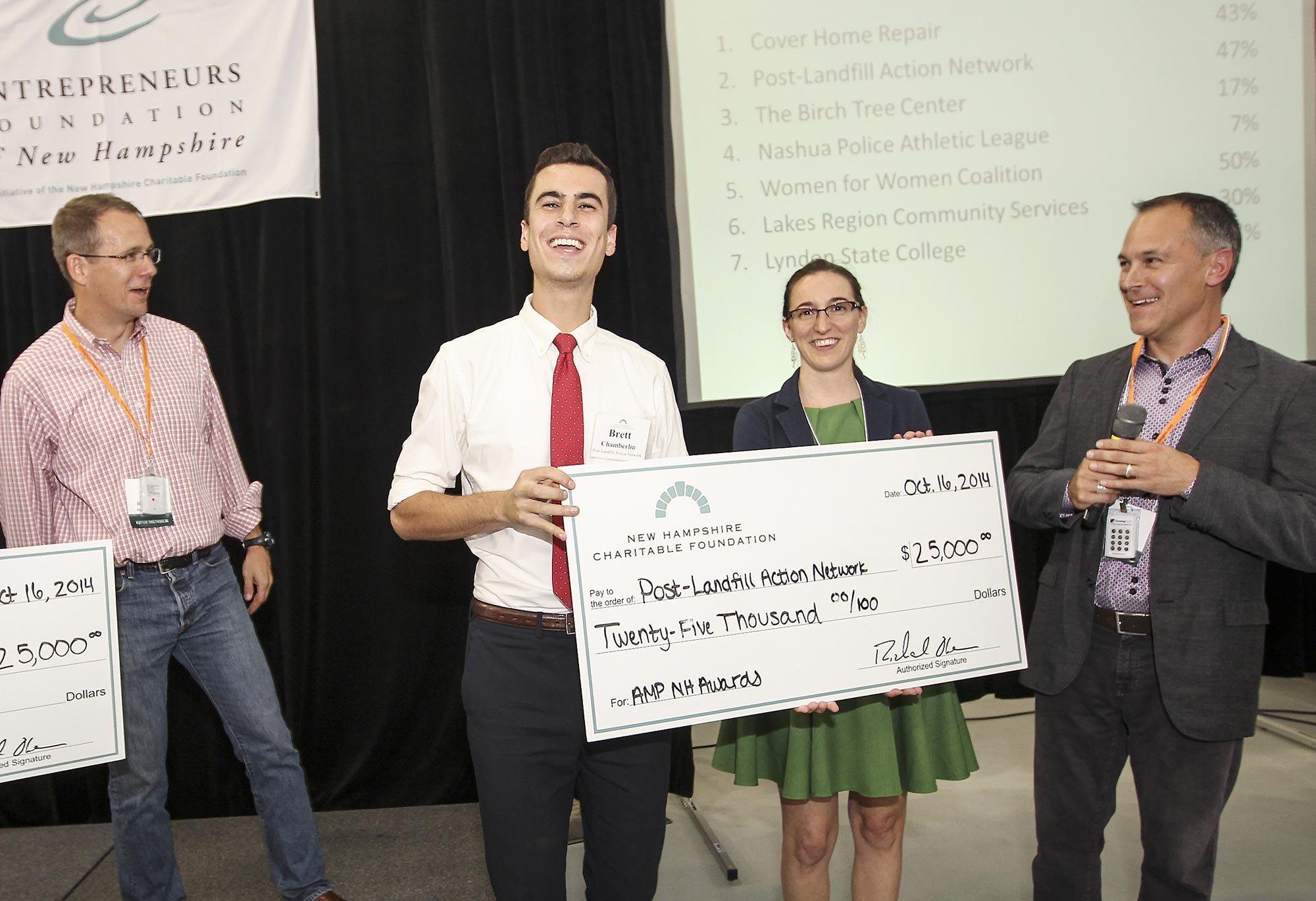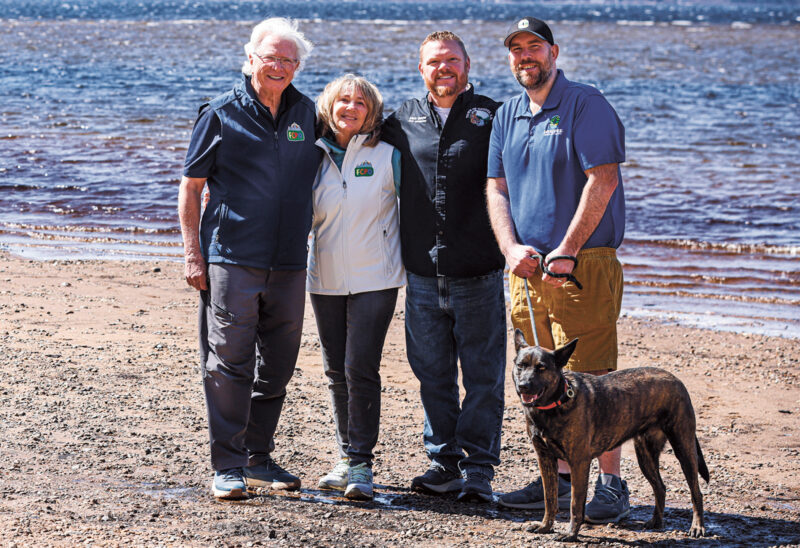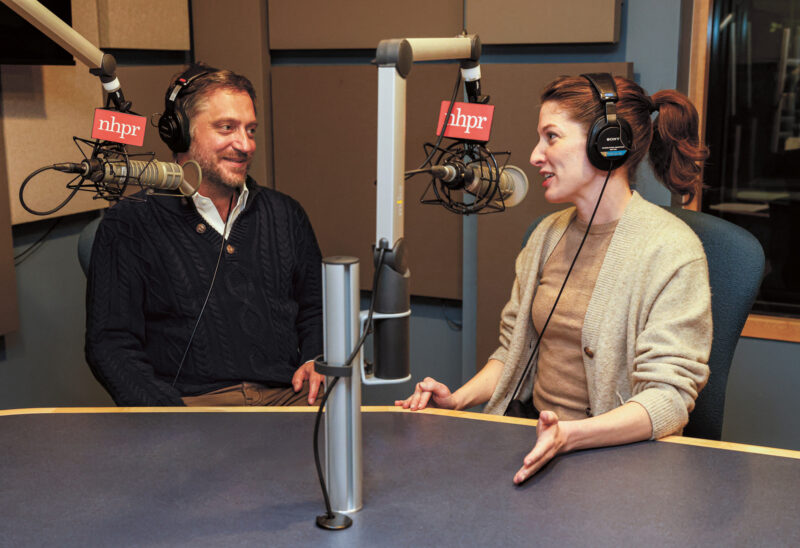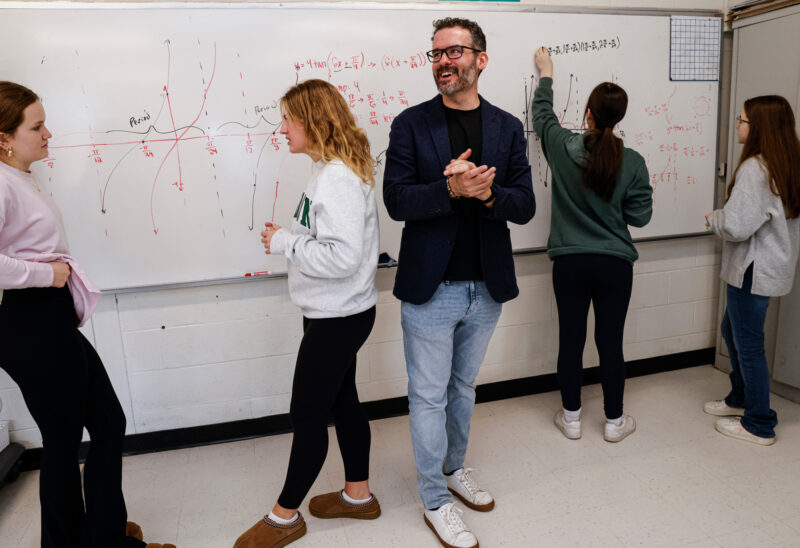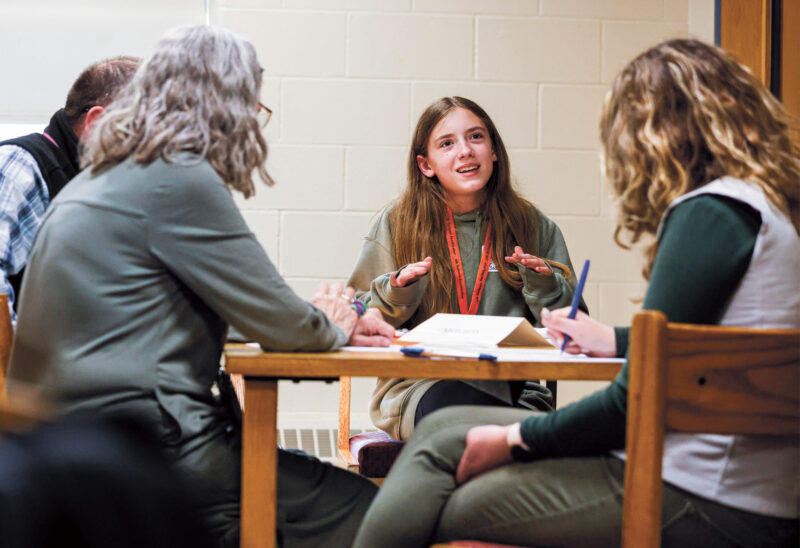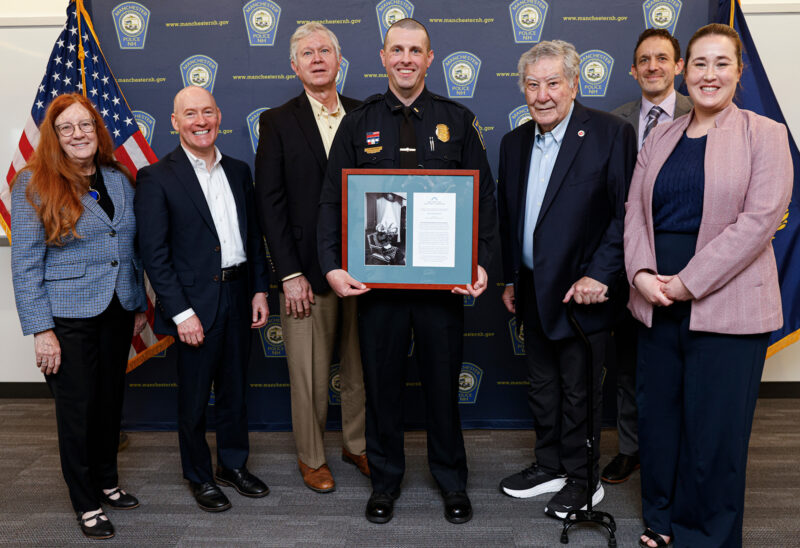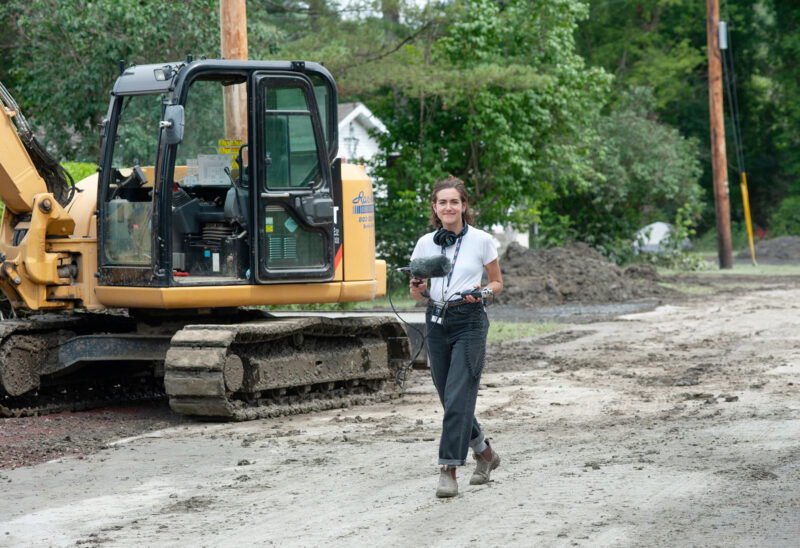The Post-Landfill Action Network has used a $25,000 AMP grant from the Entrepreneurs’ Fund of New Hampshire to ramp up its work of advancing the “zero-waste” movement on college campuses. The grant helped the organization to hire a Director of Campus Research and Resource Development. She is helping the organization to expand its operations and is building partnerships with existing waste-reduction companies.
When the grant was awarded, PLAN had been working with just nine campuses nationwide to reduce waste through student-led reuse, recycling, and waste-reduction initiatives. Now it is working with 40.
PLAN is now working with six of the 14 large college campuses in New Hampshire — up from just two six months ago.
In advancing the “zero-waste” movement, PLAN is keeping waste out of landfills, saving universities money on waste disposal fees, saving students money on back-to-school shopping, supporting the recycling industry, and developing student leadership centered on a pressing environmental issue.
The group is now helping schools work on aggregating materials to make recycling more cost-effective, and is in process of making agreements with three companies to help make that happen. And PLAN is helping student groups on campuses to create “move-out” projects like its initial successful model at the University of New Hampshire in Durham. When students move out, the items they discard — from refrigerators to clothing and electronics and furniture — are kept out of dumpsters and resold to students moving in.
And the group is creating training manuals and resource guides for campuses working toward zero waste.
The group participated in the EFNH “Pitch Camp” which PLAN Director Alex Freid said “definitely helped us to hone our pitch, to explain in much more concise and understandable terms who we are, what we do, what our value is and how we can scale that value.”
He said that, as PLAN continues to build capacity and expand its reach, it will rely on the “network connections” made during the process.
And he hopes that the example set on college campuses will spread.
“What’s really interesting about the zero-waste movement is that campuses have the ability to achieve zero waste before the rest of society has the ability to do so,” Freid said.
But the rest of society may just take the model they create — and run with it.

